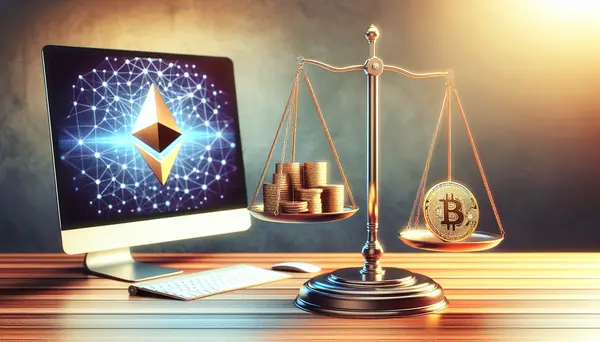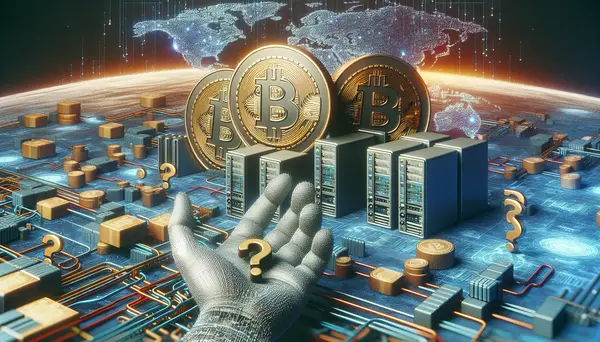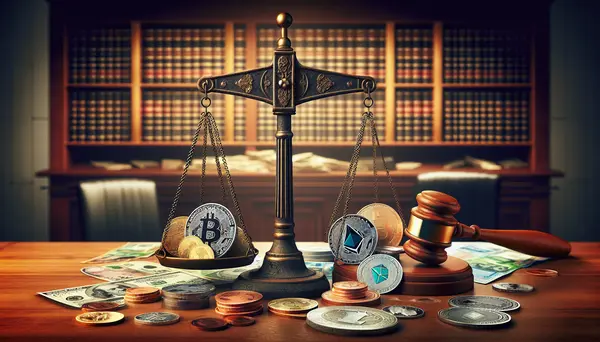Decentralization
Decentralization
Understanding Decentralization
In the context of cryptocurrency and blockchain, decentralization is a core principle. It corresponds to the distribution of authority, functions, and operations across a network, rather than being centralized in a single point or authority. In simpler terms, it means that no single entity has exclusive control over the entire network. This is in contrast with centralization, where a single body, such as a bank or government, has control and can dictate terms.
The Importance of Decentralization
Decentralization plays an imperative role in blockchain and cryptocurrencies. It enforces transparency, enhances security, and promotes trustless transactions. When a network is decentralized, all participants can access and validate the transactions, ensuring a transparent and fair system. Moreover, since there are multiple nodes storing data in a decentralized network, it becomes increasingly difficult for hackers to manipulate the system, ensuring enhanced security.
Decentralization and Cryptocurrencies
Cryptocurrencies embody the essence of decentralization. For instance, Bitcoin, the first cryptocurrency, operates on a decentralized network known as blockchain. This implies that no single entity controls Bitcoin. The network collectively verifies and validates each transaction. This guarantees a democratic process, free from any manipulation by central institutions.
Decentralization: An Attribute of Freedom
In the realm of cryptocurrencies and blockchain, decentralization is often regarded as an attribute of freedom. It empowers individuals by giving them the control and autonomy over their transactions, without the need for intermediaries like banks. This can make transactions faster, cheaper, and potentially more secure.
Limitations of Decentralization
While decentralization offers numerous advantages, it also has its limitations. Challenges such as scalability, slow transaction speed, and susceptibility to '51% attacks' where a user controlling over 50% of the network could potentially manipulate the system, are some of the downsides. But despite these challenging aspects, the idea of decentralization continues to push the boundaries, reinventing the way we handle financial transactions in our digital world.
Blog Posts with the term: Decentralization

Blockchain's Potential Beyond Cryptocurrency
Introduction: Blockchain's Potential Beyond Cryptocurrency When we hear the term "blockchain," most of us instinctively think of cryptocurrencies like Bitcoin and...

Unraveling the Mystery of Bitcoin: A Beginner's Guide
Introduction to Bitcoin So, you've heard about this buzzword - Bitcoin. What is it exactly? And why is it becoming such...

Unlocking the Potential of NFTs: A Comprehensive Guide
Intro: Unleashing the Power of NFTs Non-Fungible Tokens, also known as NFTs, are conquering the digital realm. Differentiating itself from standard...

Crypto Investments: Risks and Rewards Explained
Introduction: Understanding the World of Crypto Investments Welcome to the world of cryptocurrencies, a digital frontier teeming with enormous profit potential...

The dangers in cryptospace
Introduction: Understanding the Crypto Space Cryptocurrencies have transformed our understanding of finance. The Crypto Space refers to a digital landscape, where...

Blockchain Founders Capital: Investing in the Future
Understanding Blockchain Founders Capital and Its Vision Blockchain Founders Capital is a trailblazer in the realm of venture capital, harnessing the...

Blockchain's Revolutionary Role in Cybersecurity
In an era marked by technological advancements, it is impossible to overlook the transformative role of blockchain in various sectors....

Investing in Cryptocurrency: Top Tips for Beginners
Introduction: The Exciting World of Cryptocurrency Ever thought about stepping into the daring world of cryptocurrency? Whether it's Bitcoin, Ethereum, or...

Cryptocurrency Investment: Tax Implications and Strategies
Introduction: The Intersection of Cryptocurrency and Taxation It's important to remember, that as we navigate the fascinating world of cryptocurrencies, we...

Monero and Blockchain: A Closer Look at the Privacy-Focused Cryptocurrency
Understanding Monero: The Basics of Privacy-Focused Cryptocurrency Delving into the realm of digital currency, Monero stands out as a distinctive player...

Blockchain's Role in Revolutionizing Supply Chains
Introduction to Blockchain and Supply Chains Before diving into the transformative power of blockchain, let's briefly touch upon what this technology...

Bitcoin's Evolution: Past, Present, and Future
Introduction to the Evolution of Bitcoin It's easy to overlook the rocky road that Bitcoin has traveled, considering its current status...

Blockchain's Role in Intellectual Property Protection
Introduction to Blockchain and Intellectual Property The world of digital assets has seen remarkable growth in recent years, leading to substantial...

The Impact of Regulatory Changes on Cryptocurrency Investments
Introduction: Navigating the Shifting Landscape of Cryptocurrency Regulation It is undeniable that cryptocurrencies have reshaped our understanding of the financial landscape....

Blockchain's Disruption in the Music Industry
Introduction: Harnessing the Power of Blockchain There has been much talk about the revolutionary potential of blockchain in various sectors of...
